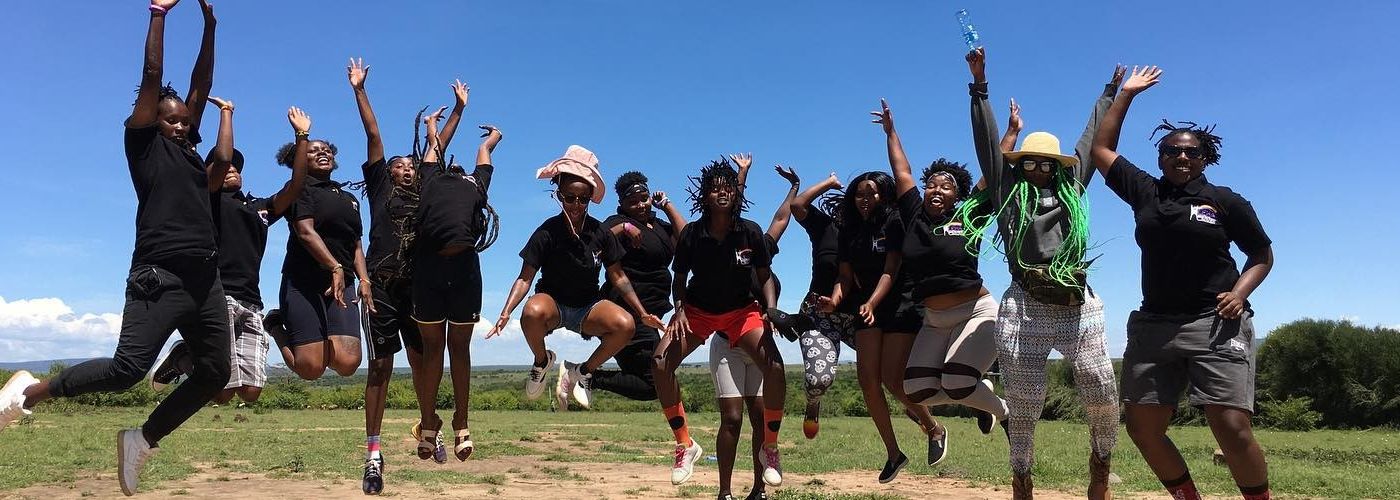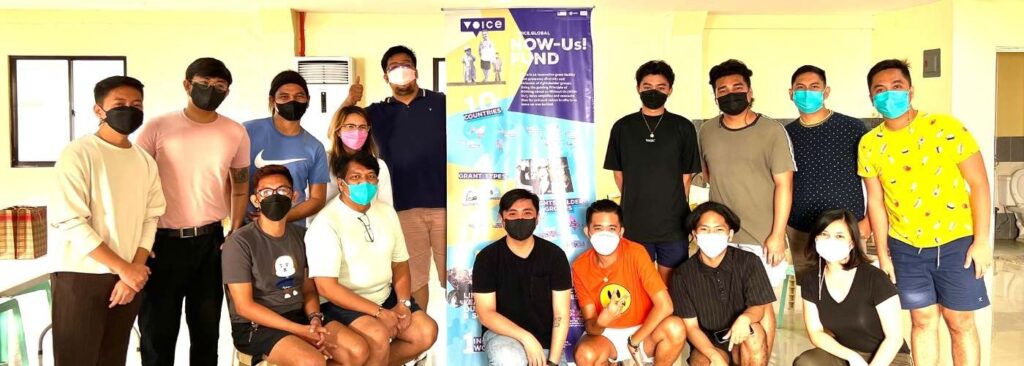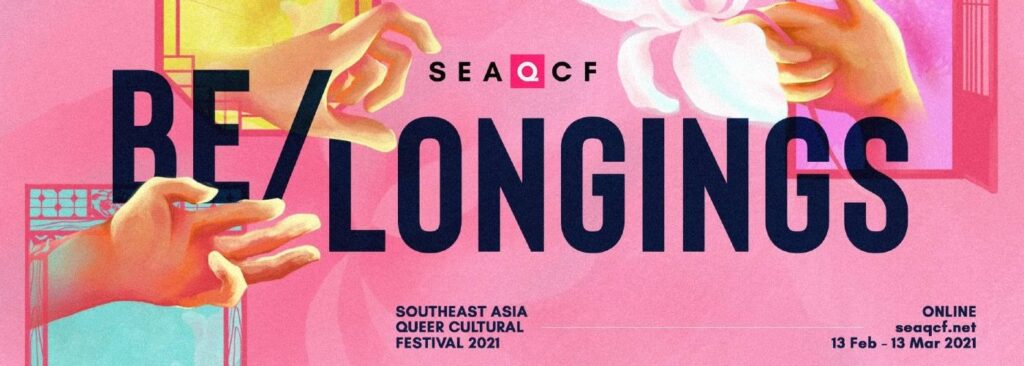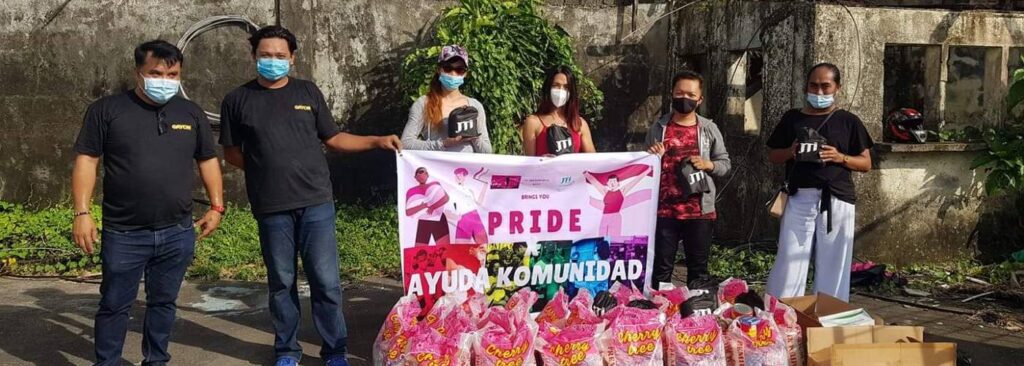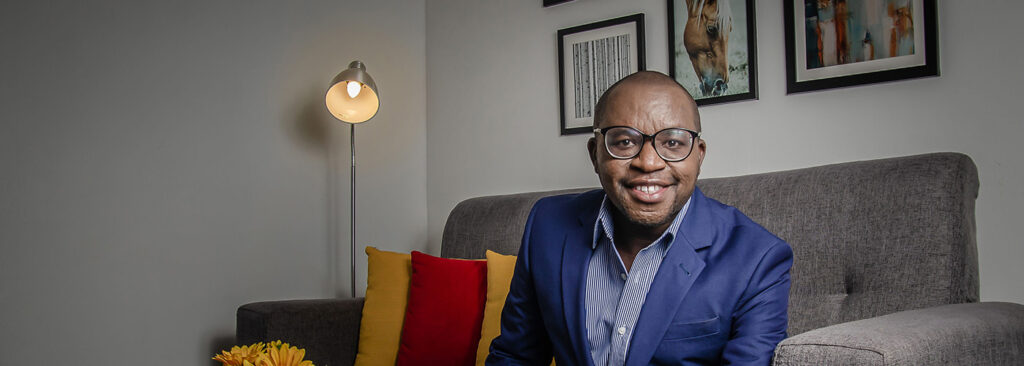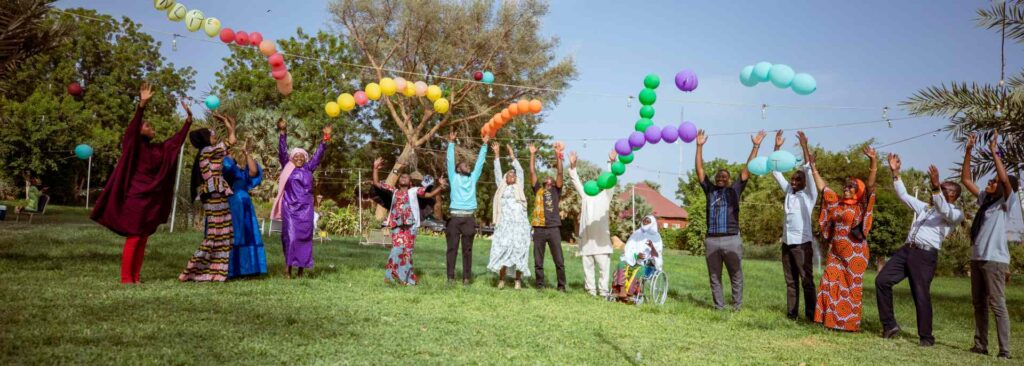“In the Mount Kenya region, lesbian, bisexual and queer (LBQ) people live in constant fear because of the constant abuse and violence they face,” says Alexia Kagendo, director of LEHA Kenya. “They, LBQ people, think they don’t have any rights, not even the right to live,” Alexia adds. LEHA stands up for them and fights discrimination. With the support of Hivos through the Voice program, the organization has expanded, professionalized, and increased the activities it offers to its now 400 LBQ members.
In Kenya same-sex acts are illegal, and sexual and gender diversity are widely condemned by society and the church. “This is seen as something immoral taken from the West, something that is definitely not African,” Alexia explains. So LBQ people are constantly at risk of being arrested if they are open about their sexual orientation or do not meet prevailing heteronormative standards of behavior or appearance. “They are afraid of the police, so they hardly ever report violent incidents. They don’t want anyone to know they’re lesbian, bisexual, or queer. They lock themselves up at home and avoid contact with the outside world. They also often suffer psychologically from everything they go through, problems they can’t talk to anyone about.”
Fighting back
Alexia founded LEHA in 2015. “This was my way of fighting back. All my life I’ve experienced discrimination and violence because of my appearance. At college, people always wanted to know if I was female or male, and I was treated badly. In 2015 I was interviewed for a job as a social worker. The human resources officer took one look at me and said, ‘I don’t care how qualified you are, you can’t work here. I don’t even want to interview you.’ I just broke down. I really wanted to work, but no one would give me the chance.” Fortunately, Alexia met other people in the same situation and together they started LEHA, originally as a self-help group.
LEHA has now grown into an organization where LBQ people learn about their rights and how to use existing laws to defend themselves. “We empower LBQ individuals by informing and educating them so can stand up for themselves,” Alexia explains. “We organize psychosocial support groups, we try and improve people’s access to the labor market and health care, and we do research. We also offer services like family planning, testing and treatment for STIs, and do cervical and breast cancer diagnosis.”
Professional growth
After LEHA started to get support from Hivos’ Voice program in 2019, it was able to develop into a mature organization. “Now we work in five districts instead of two, and we’ve trained 15 community members to educate the LBQ communities there. This has created a real snowball effect. We now have 400 people affiliated with us,” Alexia laughs. LEHA has also become more professional, using the grant support to invest in a better accounting system, which has greatly improved their financial reporting.
Psychological help
Another area where LEHA has expanded since 2019 is offering psychological help. Alexia runs down the list of their new activities. “Despite all the abuse our community has suffered, people don’t seek help because they’re not sure how a therapist will behave towards them. But now we can offer sessions with LBQ-friendly psychologists, as well as yoga, meditation, and even taekwondo so people can exercise and relieve their stress. Finally, we also offer painting therapy. People paint what they feel and talk about it with each other.”
Self confidence
Alexia concludes by noting what a huge boost Voice’s support has given to LEHA’s self-confidence. “This was the first time we had such a large amount of funding. It’s really helped us grow as an organization. We talk to other donors much more easily now and have learned how to convince them to support us. This makes us feel confident that we’ll be able to reach many more people in the future, many more people who will finally be able to be themselves, regardless of sexual or gender preference.”
About Voice
Voice is an innovative grant facility executed by a consortium between Oxfam Novib and Hivos. It supports rightsholders and groups facing marginalization or discrimination in their efforts to express their views and demand their right to responsive and inclusive societies. Specifically: people with disability; LGBTIQ+ people; women facing exploitation, abuse or violence; vulnerable elderly and the youth; Indigenous people, and ethnic minorities.

